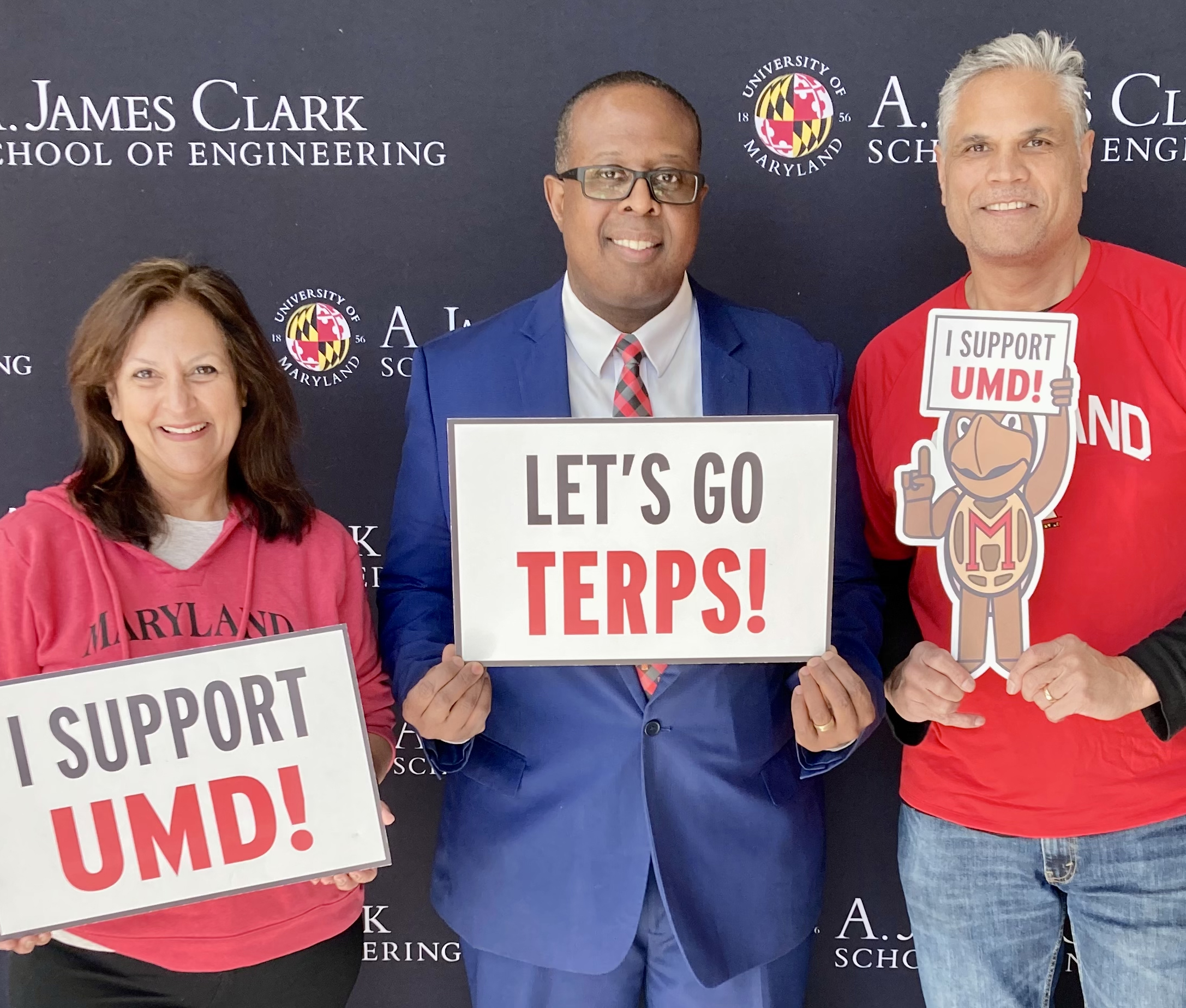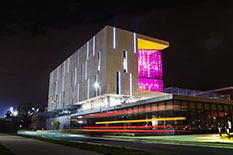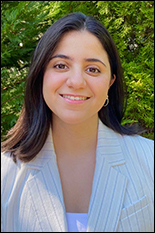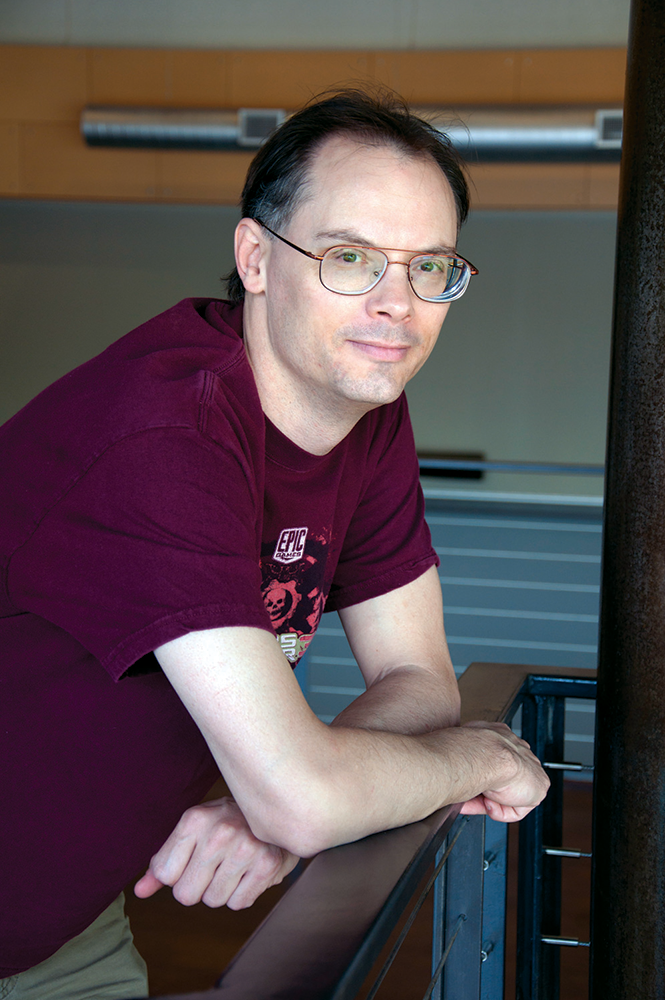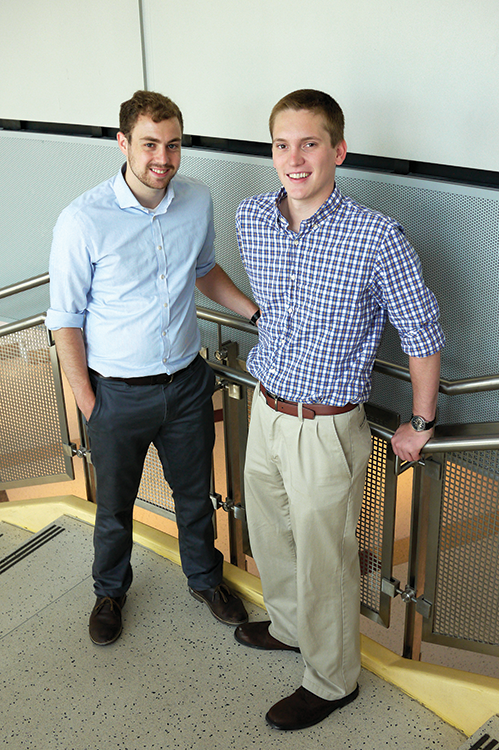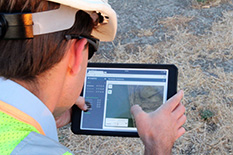News Story
15 Technology Product Partnerships Earn Grants Worth $4.2M
The Maryland Industrial Partnerships Program (MIPS), a historically effective innovation development program in the State of Maryland, has approved 15 new high-technology and biotechnology product development grants worth $4.2 million.
Among the projects are new drugs, treatments or tests for breast cancer, staph infections and malaria, "green" heated chicken house flooring, a dual-use, dual-powered motorized cycle, superior quality glucosamine, and a stylish plug-in electric hybrid car.
"Our number one priority is to create jobs in this new economy," says Maryland Governor Martin O'Malley. "The Maryland Industrial Partnerships Program invests in innovation, enabling us to improve our quality of life and create jobs for the next generation of businesses in Maryland."
The grants combine $3.2 million from participating companies and $1 million from MIPS. The Maryland Department of Natural Resources and the Environmental Protection Agency provided additional funding for select MIPS projects.
MIPS, an initiative of the Maryland Technology Enterprise Institute (Mtech) at the University of Maryland, provides grants for commercially promising technology product development projects that partner Maryland companies with researchers in Maryland public universities. Both companies and MIPS contribute money, all of which supports the work of faculty and graduate students.
Companies and faculty for each project include:
-
Salisbury-based AHPharma Technology LLC (www.ahpharma.com) Jeannine M. Harter-Dennis, professor, University of Maryland Eastern Shore ($152,114): developing a radiant, solar-thermal-heated, hot-water chicken house flooring system that reduces fuel usage during the production cycle, improves the performance of the birds, lowers emissions from the house, and minimizes the land disposal of the poultry litter by creating alternative uses for the generated manure.
-
Rockville-based Aparna Biosciences (www.aparnabio.com) and John B. Sacci Jr., associate professor, University of Maryland, Baltimore ($132,748): developing a new treatment for drug-resistant malaria.
-
Baltimore-based Assay Biomarker Inc. and Bingren Hu, professor, University of Maryland, Baltimore ($147,525): developing glycoform-specific antibodies for detecting cancer biomarkers.
-
Fruitland-based BIKETOO Inc. (www.biketooinc.com) and Chandrasekhar Thamire, associate professor, University of Maryland, College Park ($187,000): developing a dual-use, motorized cycle that can be powered by pedaling or via a motor.
-
Bethesda-based Fish Pro Grow LLC and Y. Martin Lo, associate professor, University of Maryland, College Park ($138,000): developing a process to take scrap from fish processing plants and transform it into a liquid organic fertilizer.
-
Columbia-based FLAVORx Inc. (www.flavorx.com) and William LaCourse, chair and professor, chemistry and biochemistry, University of Maryland, Baltimore County ($92,856): testing the company's medicine flavors to validate their impact on the potency and physical attributes of commercially available liquid medications.
-
Rockville-based Genovation Cars Inc. (www.genovationcars.com) and Jewel Barlow, director, Glenn L. Martin Wind Tunnel, University of Maryland, College Park ($135,110): validating the computational fluid dynamics (CFD) models of the company's plug-in electric hybrid G2 automobile.
-
Cambridge-based GlycoPure Inc. and William Bentley, professor University of Maryland, College Park ($165,420): developing a novel process for producing superior quality glucosamine in a cost-effective and environmentally safe manner.
-
Baltimore-based GreenSpacers Inc. and Thomas Handwerker, professor, University of Maryland, Eastern Shore ($134,700): testing the company's soil-less plant growing systems, known as hydroculture, to prove that they not only remove targeted volatile organic compounds, but they also do not generate bioaerosols, molds, mildews, or other allergens that have prevented the placement of live plants in hospitals, clinics and sensitive environments.
-
Gaithersburg-based Information Technologies Curves (www.itcurves.net) and Elise Miller-Hooks, associate professor, University of Maryland, College Park ($169,499): developing state-of-the-art intelligent optimization algorithms to embed in a commercially successful transportation management decision tool and software system.
-
Hollywood-based Leadership Health LLC and Jae Kun Shim, associate professor, University of Maryland, College Park ($514,100): developing a personalized medicine software system to enable physical therapists to manage complex cardiometabolic disease by referencing thousands of protocol variations and producing a highly specialized protocol that takes into account each patient's personal profile.
-
Rockville-based Opticul Diagnostics Inc. (www.opticuldiagnostics.com) and Richard Venezia, professor, University of Maryland, Baltimore ($425,500): clinical trial for the company's point-of-care diagnostic medical device for detecting methicillin-resistant Staphylococcus aureus (MRSA) and methicillin-susceptible Staphylococcus aureus (MSSA).
-
College Park-based Optimal Solutions Group LLC (www.optimalsolutionsgroup.com) and Lise Getoor, associate professor, University of Maryland, College Park ($257,469): developing a health care research and delivery virtual collaborative system to provide researchers, practitioners, and professionals with a platform to share information, best practices, research, publications and studies.
-
Gaithersburg-based Stress Indicators Inc. (www.smartbolts.com) and Chandrasekhar Thamire, associate professor, University of Maryland, College Park ($256,000): refining a reliable process for manufacturing the company's High Resolution (HR) Smartbolts, fasteners that are fitted with special visual tension indicators that show whether a joint is loose or tight with a clear, reversible color change.
-
Columbia-based Xcision Medical Systems LLC and Steven Feigenberg, associate professor, University of Maryland, Baltimore ($1,648,985): developing a novel radiosurgery device built specifically for breast cancer that could replace surgery and postoperative radiation therapy as the standard of care for early breast cancer, turning a 3-4 months treatment process into three completely non-invasive treatments delivered over one week.
This is the 48th round of MIPS funding. Six projects are in Montgomery County, three are on the Eastern Shore, two are in the Baltimore area, two are in Columbia, one is in College Park and one is in southern Maryland. Eight of the projects will take place at the University of Maryland, College Park, three at the University of Maryland, Baltimore and two each at both the University of Maryland, Baltimore County, and the University of Maryland, Eastern Shore.
Blockbuster and life-changing products developed by Maryland companies have benefitted from MIPS, including Martek Biosciences' nutritional oils, Hughes Communications' HughesNet, MedImmune's Synagis, Black & Decker's Bullet Speed Tip Masonry Drill Bit, WellDoc's mobile diabetes management platform, and CSA Medical's diseased-tissue ablation device. Products with MIPS projects have generated more than $21.6 billion in revenue and added thousands of jobs to the region.
MIPS has supported research projects with nearly 500 different Maryland companies since 1987.
Projects are subject to final contract negotiations.
Ten of the projects will take place at the University of Maryland, College Park, while one will occur at each of the following institutions: Frostburg State University, Towson University, the University of Maryland, Baltimore, University of Maryland, Baltimore County, University of Maryland Center for Environmental Science, and the University of Maryland, Eastern Shore.
Projects are subject to final contract negotiations.
Published August 10, 2011
